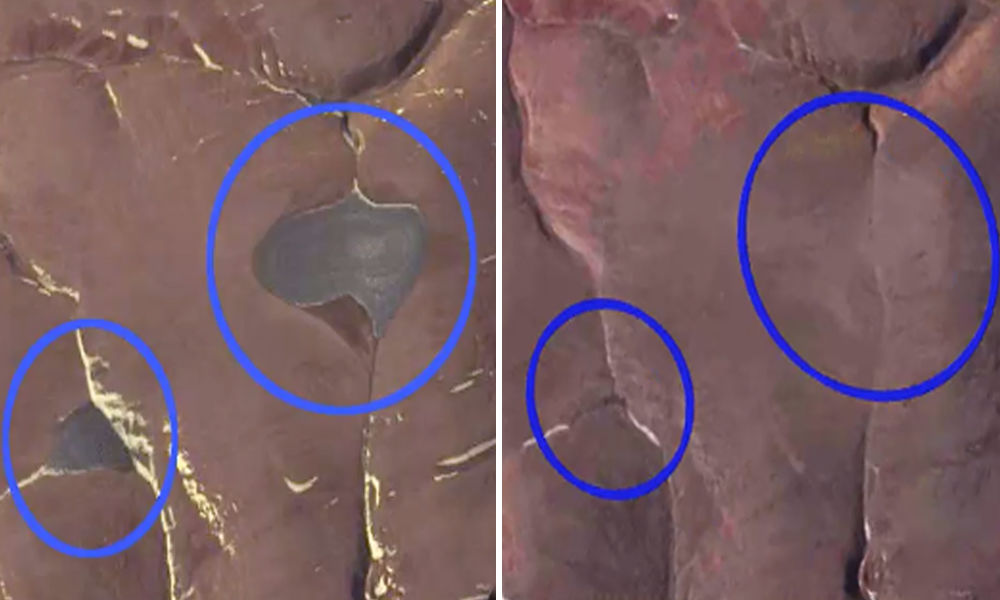Two ice caps on the Hazen Plateau of northeastern Ellesmere Island in Nunavut, Canada, have disappeared due to human-induced global warming, according to recent satellite images from NASA.
In a 2017 paper in The Cryosphere, the National Snow and Ice Data Center(NSIDC) scientists and colleagues had predicted that the ice caps would melt out completely within the next five years.
Mark Serreze, now director of NSIDC, has studied the St. Patrick Bay ice caps since the 1980s. The Distinguished Professor of Geography at the University of Colorado Boulder and lead author of the paper had first explored the ice caps in 1982 as a graduate student.
‘Climate change is very, very real, and as long predicted, the #Arctic is leading the way. We are geoengineering our planet, and we don’t seem to want to accept that we’re headed for a very different world.’ NSIDC’s @MarkSerreze to @DiscoverMag: https://t.co/U2cYILdUfD. #Climate
— National Snow and Ice Data Center (@NSIDC) July 31, 2020
‘When I first visited those ice caps, they seemed like such a permanent fixture of the landscape. To watch them die in less than 40 years just blows me away,’ Serreze was quoted as saying by Daily Mail.
In the 2017 study, the scientists compared satellite imagery from 2015 with historical images from 1959, which revealed that in 2015, the ice caps were just five per cent of their size almost 60 years ago.
Images from NASA’s Advanced Spaceborne Thermal Emission and Reflection Radiometer (ASTER), taken in 2015 and 2020, showed how the ice caps have disappeared in just five years. The latest ASTER images were taken on July 14, 2020.
In a 2017 paper (https://t.co/3wWTcs6yu7), NSIDC scientists predicted that the St. Patrick Bay ice caps in Canada would melt completely within 5 years. @NASAEarth satellite images show that prediction was accurate—the ice caps have disappeared. https://t.co/N4AlyWZ9JB @CIRESnews pic.twitter.com/tICxNOfL9z
— National Snow and Ice Data Center (@NSIDC) July 30, 2020
The St. Patrick Bay ice caps were one-half of a group of small ice caps on the Hazen Plateau. The second half of the ice caps are the Murray and Simmons ice caps, which, located at a higher elevation, are faring better. However, scientists predict their demise is imminent.
‘We’ve long known that as climate change takes hold, the effects would be especially pronounced in the Arctic,’ Serreze said.
‘But the death of those two little caps that I once knew so well has made climate change very personal. All that’s left are some photographs and a lot of memories,’ he added.
Also Reading: Polar Bears May Go Extinct By 2100 Due To Global Warming: Study












